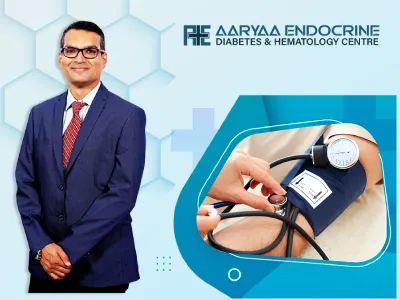
High Blood Pressure, also known as hypertension, is a widespread yet often silent health condition affecting millions worldwide. It occurs when the force of the blood pushing against artery walls is consistently too high, which can damage arteries and lead to serious health problems. Many people with High Blood Pressure are unaware of their condition, making it even more dangerous if left untreated.
In this will walk you through the critical aspects of High Blood Pressure—its causes, symptoms, associated risks, and how to manage it in 2025 effectively.
What is High Blood Pressure?
High Blood Pressure is a condition where the pressure in the arteries is elevated, making the heart work harder to pump blood throughout the body. Blood pressure readings consist of two numbers: systolic (pressure during a heartbeat) and diastolic (pressure between beats). A consistent reading of 140/90 mm Hg or higher is considered high.
The condition is categorized into:
- Stage 1 Hypertension: 130-139/80-89 mm Hg
- Stage 2 Hypertension: 140/90 mm Hg or higher
- Hypertensive Crisis: 180/120 mm Hg or higher
Symptoms of High Blood Pressure
Most people with High Blood Pressure may not notice any symptoms until the condition becomes severe. However, in advanced or emergency stages, symptoms may include:
- Headaches
- Shortness of breath
- Nosebleeds
These symptoms aren’t specific and usually appear only when blood pressure has reached a life-threatening level. Therefore, regular check-ups are vital.
Common Causes of High Blood Pressure
Multiple factors contribute to the development of High Blood Pressure. Here are the most significant ones:
- Unhealthy Diet: A diet high in salt, saturated fats, and cholesterol can significantly elevate blood pressure. Excess sodium causes the body to retain fluid, which increases blood pressure.
- Sedentary Lifestyle: Lack of physical activity weakens the heart and can lead to weight gain, increasing the risk of High Blood Pressure.
- Smoking: Tobacco contains chemicals that can damage blood vessels and increase heart rate, leading to temporary and long-term High Blood Pressure.
- Excessive Alcohol Consumption: Regular heavy drinking can damage the heart, increase weight, and raise High Blood Pressure.
- Chronic Stress: Stress hormones constrict blood vessels and raise your heart rate, both of which contribute to elevated blood pressure over time.
- Genetic Factors: Family history plays a significant role in developing High Blood Pressure. If your parents or close relatives have hypertension, you may be more likely to develop it.
Health Risks Associated with High Blood Pressure
If left untreated, High Blood Pressure can lead to life-threatening health problems. Some of the major complications include:
- Heart attack and heart failure
- Stroke
- Aneurysm
- Kidney failure
- Vision loss
- Cognitive decline and dementia
These risks highlight the importance of early diagnosis and proper management of High Blood Pressure.
Diagnosis of High Blood Pressure
Diagnosing High Blood Pressure typically involves
- Repeated blood pressure readings
- Blood tests (to check for cholesterol, sugar, and kidney function)
- Electrocardiogram (ECG) to monitor heart activity
- Echocardiogram if heart damage is suspected
Treatment Options for High Blood Pressure
Managing High Blood Pressure involves lifestyle changes, medications, and consistent monitoring. Here are the main treatments:
Lifestyle Modifications
- Adopt a heart-healthy diet (like DASH)
- Reduce salt intake
- Engage in regular physical activity (at least 30 mins/day)
- Maintain a healthy weight
- Quit smoking and limit alcohol
- Practice stress-reducing techniques like meditation or yoga
Medications
Depending on severity and cause, doctors may prescribe:
- Diuretics
- ACE inhibitors
- Beta-blockers
- Calcium channel blockers
- Angiotensin II receptor blockers (ARBs)
Always follow your doctor’s advice regarding medication usage.
When to Seek Medical Help
Seek immediate care if you experience:
- Chest pain
- Severe headache or confusion
- Sudden vision changes
- Difficulty breathing
- Nosebleeds that don’t stop
These may be signs of a hypertensive emergency and require urgent treatment.
Best Doctor for Very High Blood Pressure Treatment in Ahmedabad
Dr. SK Agarwal is Known as the premier doctor for High Blood Pressure, offering unparalleled expertise and compassionate care. With a deep understanding of the condition and a patient-centric approach, he delivers the best-in-class treatment, empowering patients to lead healthy and fulfilling lives.
Why Choose Us ?
At Aaryaa Endocrine, we take pride in delivering advanced, ethical, and compassionate care for managing High Blood Pressure. Led by Dr. SK Agarwal, one of Ahmedabad’s most trusted names in endocrine and cardiovascular care, we focus on accurate diagnosis, tailored treatments, and lifestyle support to help you take control of your health. Our approach combines medical expertise with holistic care, providing long-term solutions to improve your quality of life.
Conclusion
Uncontrolled High Blood Pressure can lead to severe complications if left unattended. Understanding the causes, symptoms, and treatment methods can empower individuals to take control of their health. If you or someone you know is experiencing symptoms related to High Blood Pressure, don’t ignore them. Early detection and professional care can save lives and significantly improve well-being.


